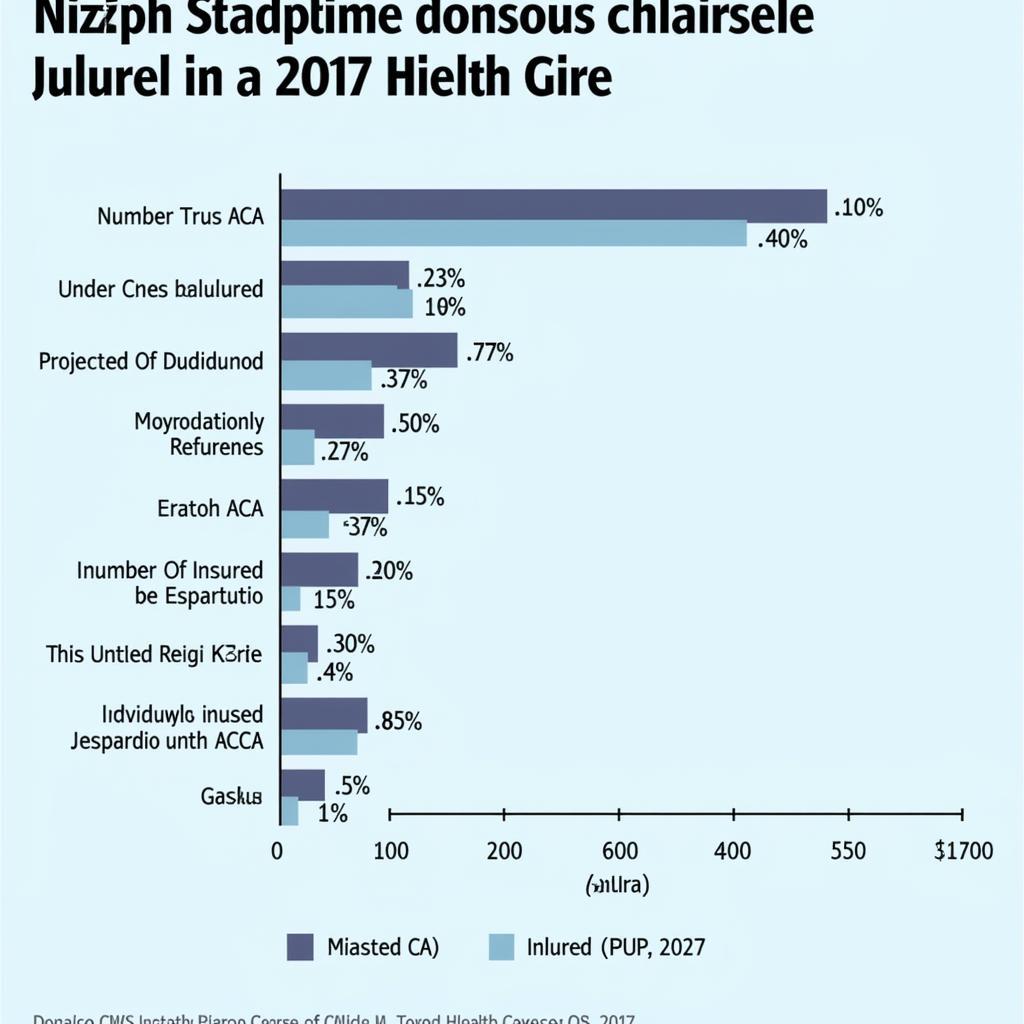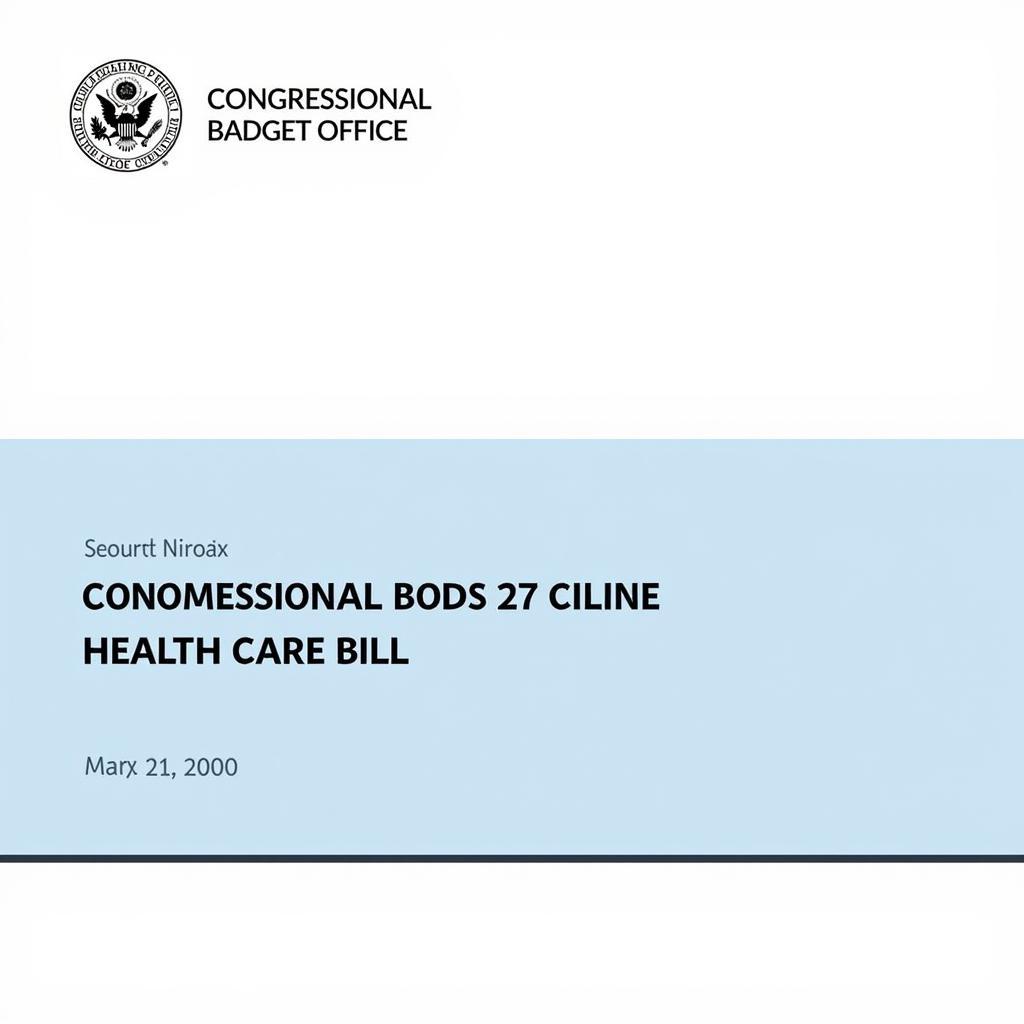The Health Care Bill of 2017, officially known as the American Health Care Act (AHCA), sought to significantly alter the Affordable Care Act (ACA), often referred to as Obamacare. This bill sparked heated debate across the nation due to its proposed changes to health insurance coverage, subsidies, and Medicaid. Understanding the specifics of this bill is crucial to grasping the potential impacts it could have had on the American healthcare landscape.
Key Provisions of the Health Care Bill 2017
The 2017 Health Care Bill aimed to repeal and replace key aspects of the ACA. One of the most significant changes was the proposed elimination of the individual mandate, which required most Americans to have health insurance or pay a penalty. The bill also sought to restructure Medicaid funding, shifting from open-ended federal financing to a per-capita cap or block grant system. Furthermore, it aimed to modify the ACA’s subsidy structure, changing the income-based subsidies to age-based tax credits. These proposed changes had the potential to significantly impact access to affordable healthcare for millions of Americans.
 Impact of the 2017 Health Care Bill on the Insurance Market
Impact of the 2017 Health Care Bill on the Insurance Market
Another significant aspect of the 2017 bill was its proposed changes to essential health benefits. While the ACA mandated coverage for ten essential health benefits, including maternity care and mental health services, the AHCA allowed states to waive these requirements. This raised concerns about access to comprehensive coverage and the potential for higher out-of-pocket costs for individuals requiring these services. The proposed changes also impacted employer-sponsored health insurance, potentially altering the requirements for businesses to offer coverage to their employees.
Understanding the Debate Surrounding the 2017 Health Care Bill
The 2017 Health Care Bill generated considerable controversy, with proponents arguing that it would lower premiums, increase choice, and reduce the federal deficit. Opponents, however, expressed concerns about potential increases in the uninsured rate, reduced access to essential health benefits, and cuts to Medicaid funding. The Congressional Budget Office (CBO) estimated that millions of Americans could lose coverage under the proposed legislation, further fueling the debate.
 CBO Report Analyzing the 2017 Health Care Bill
CBO Report Analyzing the 2017 Health Care Bill
What were the key details of the health care bill 2017?
The key details revolved around repealing and replacing parts of the ACA. This included changes to the individual mandate, Medicaid expansion, and insurance subsidies.
Did the health care bill 2017 pass?
The 2017 Health Care Bill ultimately failed to pass in the Senate.
Why was the health care bill 2017 important?
The bill’s importance lay in its potential to reshape the American health care system and affect millions of people’s access to insurance and care.
 Senate Vote on the 2017 Health Care Bill
Senate Vote on the 2017 Health Care Bill
Conclusion: The Legacy of the 2017 Health Care Bill
Although the Health Care Bill of 2017 did not become law, it remains a significant event in the history of American healthcare. The debate surrounding the bill highlighted deep divisions over the role of government in healthcare and the best way to ensure access to affordable coverage. Understanding the details of this bill remains important for analyzing future healthcare policy proposals and for understanding the ongoing debate over healthcare reform.
FAQ
- What was the main goal of the 2017 health care bill? To repeal and replace key provisions of the Affordable Care Act (ACA).
- What were the main criticisms of the bill? Concerns about increased uninsured rates, reduced access to care, and cuts to Medicaid.
- What happened to the 2017 health care bill? It failed to pass the Senate.
Need further assistance?
For any inquiries or if you require further assistance regarding car diagnostics, car detailing or any automotive-related issues, please do not hesitate to contact us via WhatsApp: +1(641)206-8880 or Email: [email protected]. Our dedicated customer service team is available 24/7 to assist you.

Leave a Reply